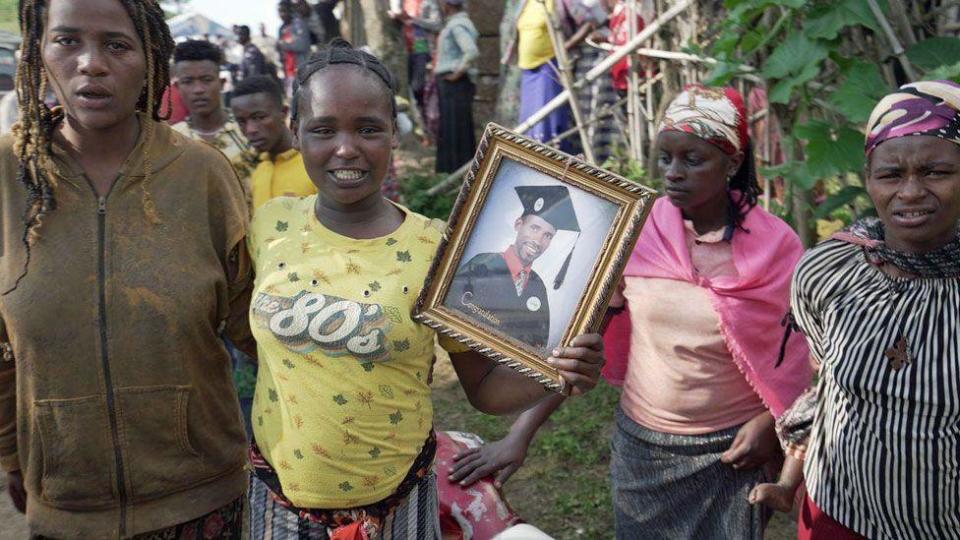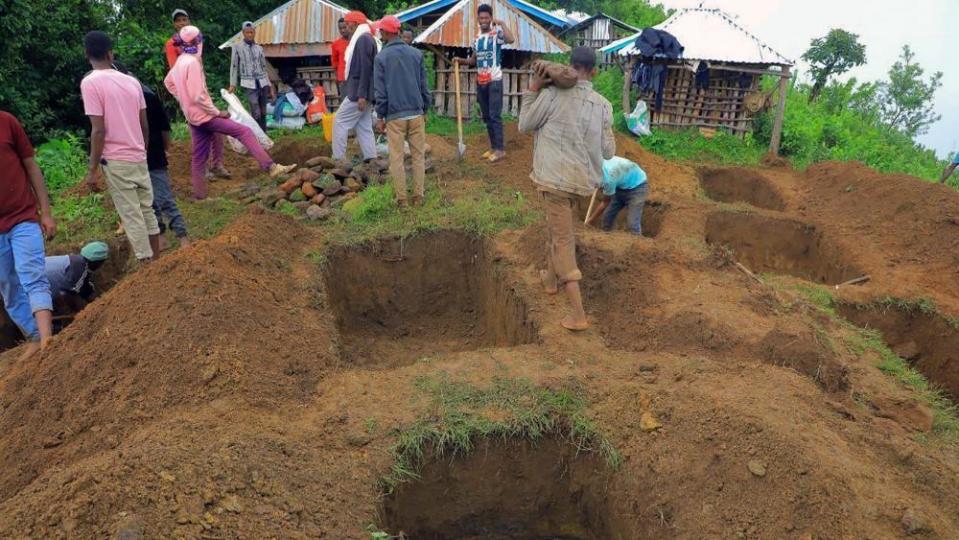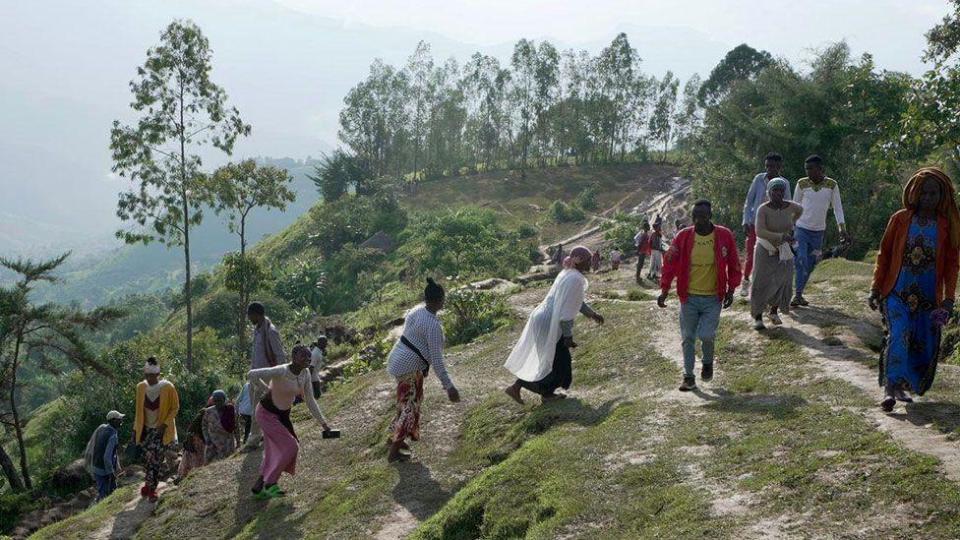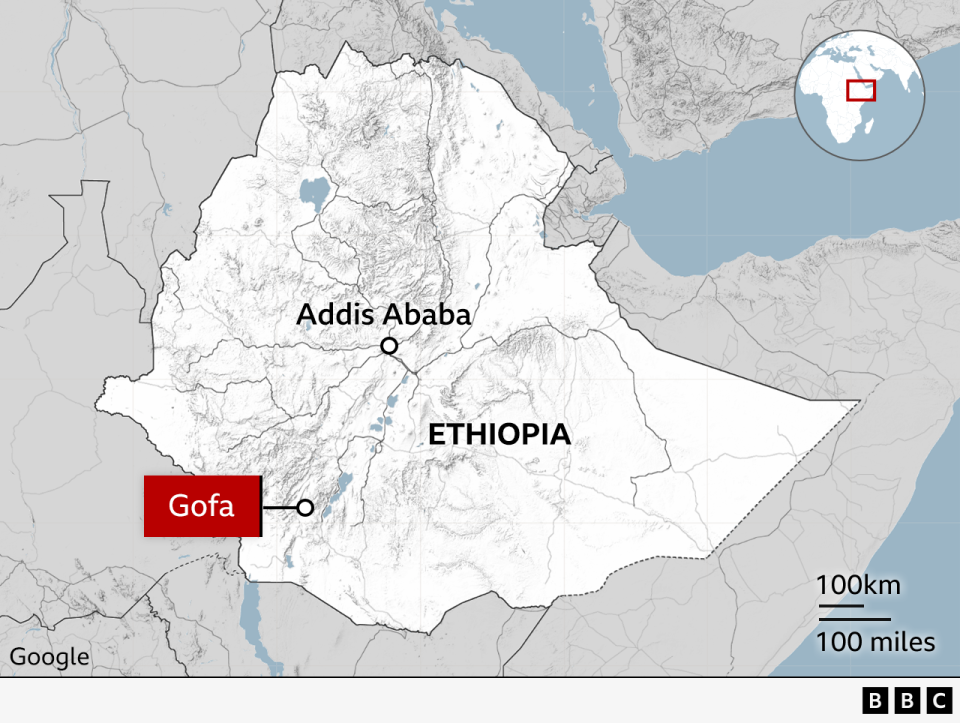At the site of Ethiopia’s deadliest landslides, men are still digging through mounds of mud with their bare hands, shovels and pickaxes to find the missing – their efforts punctuated by the wails of women and children mourning the 229 people whose bodies were found so far.
They are victims of a cruel act of nature: on Sunday, heavy rains caused a landslide in a village located high on a mountain in the remote area of Gofa.
With four houses destroyed by the landslide, nearby villagers and police officers came in large numbers to dig through the mud in hopes of finding the occupants alive, while women and children watched, prayed and comforted each other.
The search continued on Monday, only for a second landslide to occur, burying hundreds of people – no one knows exactly how many – under the mud.
When I arrived in Gofa, in southwestern Ethiopia, on Wednesday night, between 100 and 200 mostly young men were still digging while family members sat nearby, hoping for the best.
The excavators had no earthmoving equipment – nothing has been transported so far and it is impossible to bring it because there is no road leading to the village.
There is only a narrow and now muddy trail along a cliff. It’s a dangerous and steep climb – and the descent is dangerous too.
When a body is found, families are forced to carry their family member down this road for a formal burial.

Grim-looking men have built tombs upon graves, while the women and children of these farming communities cannot stop crying.
Aid officials were quoted as saying that drones are being used in search and rescue operations.
One man I spoke to said he saw them on Tuesday but hasn’t seen any since.
For the villagers, there is only one option: continue digging with shovels, pickaxes and their bare hands, hoping to find their loved ones – alive.
Fortunately, the weather held up on Wednesday, making things easier.


Gofa is part of the state known as Southern Ethiopia, located about 320 km (199 miles) southwest of the capital, Addis Ababa.
It is one of the areas of the country that has been hit by particularly heavy rain and flooding in recent months.
But the cases of landslides and floods are older.
In May 2016, at least 50 people were killed in floods and landslides after heavy rains in the south of the country.
The UN humanitarian office (Ocha) says $3 billion (£2.3 billion) is needed for Ethiopia to help people affected by El Niño over the past year – which has brought droughts and floods – as well as conflict , but the effort was “woefully underfunded.”
“As extreme rains arrive, we also expect more emergencies of this type to continue,” Ethiopia’s Ocha chief, Paul Handley, told the BBC’s Newsday program.
In the area swallowed by the landslides, there were concerns about the stability of the slope and 10,000 people in the area needed to be evacuated “out of harm’s way,” Handley added.
Additional reporting by BBC’s Basillioh Rukanga in Nairobi.




You might also be interested in:


Go to BBCAfrica.com for more news from the African continent.
Follow us on Twitter @BBCAfricaon Facebook at BBC Africa or on Instagram at bbcafrica



























/cdn.vox-cdn.com/uploads/chorus_asset/file/23985506/acastro_STK024_02.jpg?w=300&resize=300,300&ssl=1)






